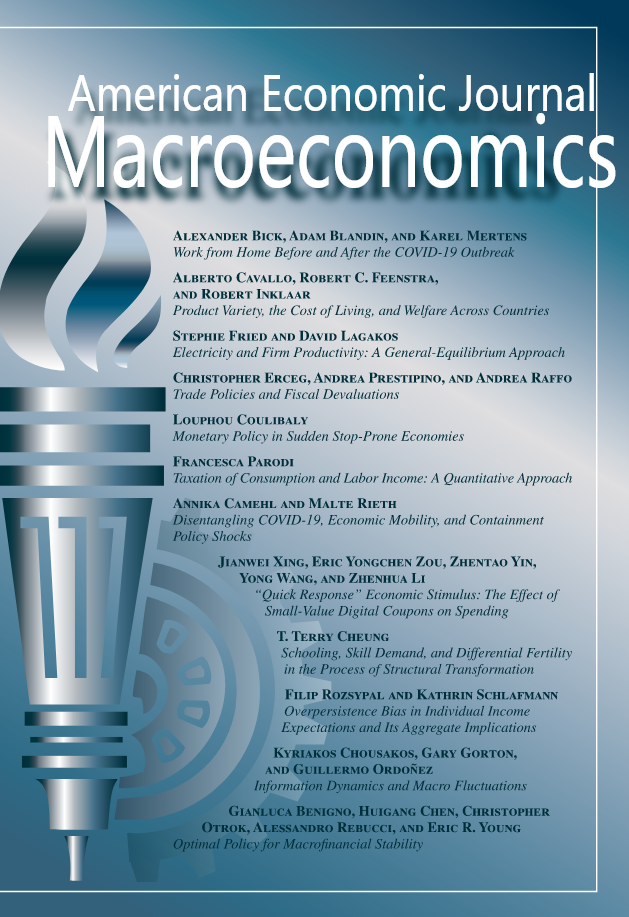消费对通胀消息的反应如何?随机对照试验的现场证据
IF 5.7
1区 经济学
Q1 ECONOMICS
引用次数: 1
摘要
我们对荷兰家庭进行了一项调查,其中随机抽样的受访者收到了有关通货膨胀的信息。由此产生的外生通胀预期变化用于评估预期如何影响消费决策。通货膨胀预期降低对非持久性支出的因果影响无法精确估计,但对持久性支出有明显的积极影响。这可能是因为当荷兰家庭降低通胀预期时,他们似乎对自己的实际收入和总支出更加乐观。我们发现,在解释消费反应时,认知或财务约束的作用很小。(凝胶c83, d12, d83, d84, e21, e31)本文章由计算机程序翻译,如有差异,请以英文原文为准。
How Does Consumption Respond to News about Inflation? Field Evidence from a Randomized Control Trial
We implement a survey of Dutch households in which random subsets of respondents receive information about inflation. The resulting exogenously generated variation in inflation expectations is used to assess how expectations affect consumption decisions. The causal effects of reduced inflation expectations on nondurable spending are imprecisely estimated, but there is a sharp positive effect on durable spending. This is likely driven by the fact that Dutch households seem to become more optimistic about their real income and aggregate spending when they decrease their inflation expectations. We find little role for cognitive or financial constraints in explaining spending responses. (JEL C83, D12, D83, D84, E21, E31)
求助全文
通过发布文献求助,成功后即可免费获取论文全文。
去求助
来源期刊

American Economic Journal-Macroeconomics
ECONOMICS-
CiteScore
8.20
自引率
1.70%
发文量
58
期刊介绍:
American Economic Journal: Macroeconomics focuses on studies of aggregate fluctuations and growth, and the role of policy in that context. Such studies often borrow from and interact with research in other fields, such as monetary theory, industrial organization, finance, labor economics, political economy, public finance, international economics, and development economics. To the extent that they make a contribution to macroeconomics, papers in these fields are also welcome.
 求助内容:
求助内容: 应助结果提醒方式:
应助结果提醒方式:


